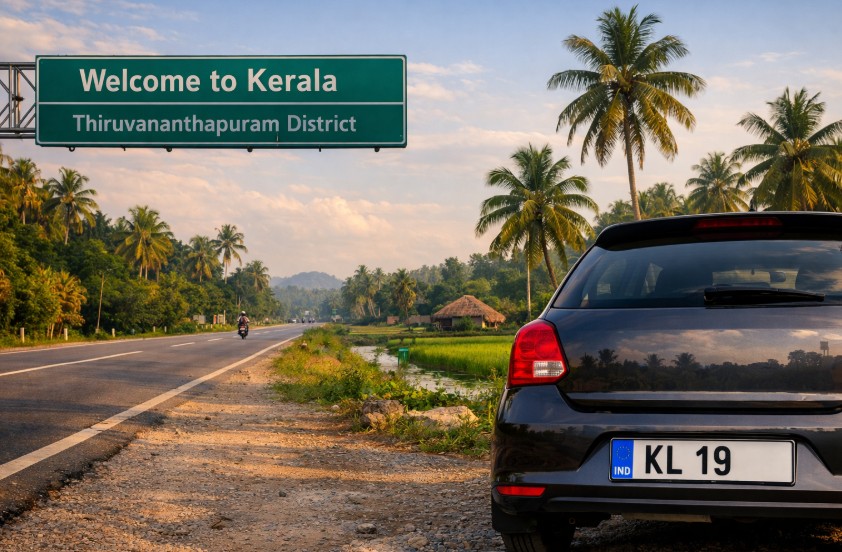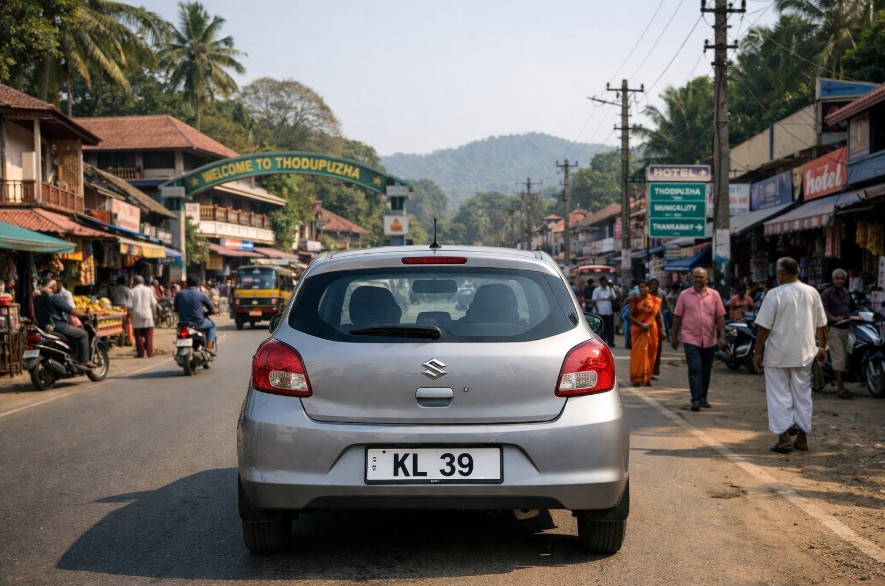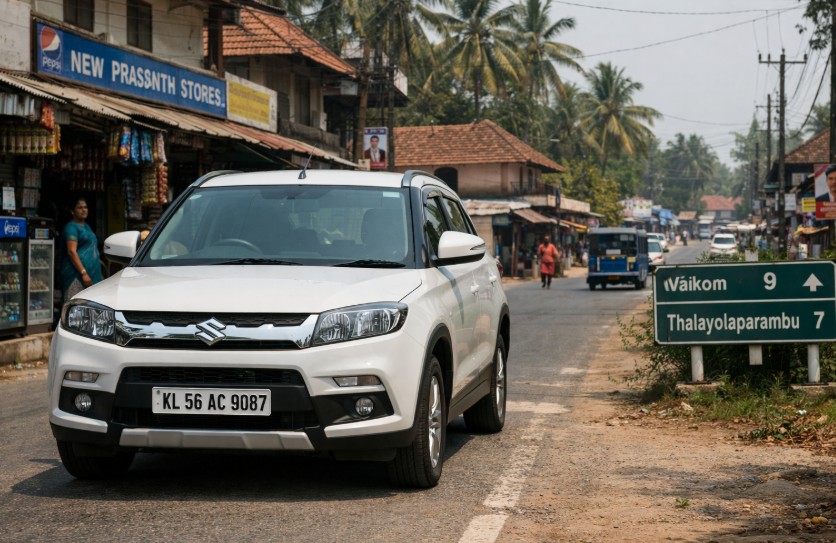Table of Contents
ToggleHave you ever checked your Indian passport and come across the term ECR and wondered what it really means? If you’re planning to work abroad, especially in certain countries, understanding this label could be more important than you think.
The Emigration Check Required (ECR) endorsement exists to protect Indian citizens, particularly those with limited education or job experience, from exploitation in foreign employment.
Introduced by the Ministry of External Affairs, the ECR status requires eligible individuals to obtain prior emigration clearance from the Protector of Emigrants (POE) before departing for work in specified countries. The system acts as a safeguard against illegal recruitment, contract fraud, and unsafe working conditions.
Knowing the difference between ECR and non-ECR can help you make smarter travel decisions and avoid unnecessary hurdles. In this guide, you’ll discover who needs ECR, how to check your status, how to change it, and the countries where it applies.
What Does ECR Mean in an Indian Passport?

ECR stands for Emigration Check Required, and it’s a stamp or endorsement printed in certain Indian passports. This classification is designed to safeguard citizens traveling to particular countries for employment, especially those with lower education levels or who are engaged in unskilled or semi-skilled jobs. It ensures these travelers receive legal protection and do not fall victim to human trafficking, illegal job offers, or abusive employment conditions.
The ECR system is governed by the Emigration Act of 1983, and managed by the Protector of Emigrants (POE), under the Ministry of External Affairs.
An individual holding an ECR passport must obtain emigration clearance before traveling for employment to any of the listed ECR countries. Without this clearance, boarding may be denied at Indian airports. The clearance verifies that the job offer is legitimate and the employer meets all legal and ethical standards.
In contrast, those who qualify as ECNR (Emigration Check Not Required) can travel freely without additional checks. However, this classification is only granted based on specific criteria such as education, profession, or income. Understanding your ECR status helps you avoid delays, comply with legal requirements, and ensures safer international employment experiences.
Who Needs ECR in a Passport?
Not every Indian passport holder is subject to the ECR requirement. The government has clearly defined criteria to determine who falls under the ECR category, primarily focusing on educational qualifications and job type.
Individuals who need ECR in their passport usually include:
- Those who have not passed the 10th standard (matriculation)
- Indian citizens traveling for employment in ECR countries
- Unskilled or semi-skilled workers seeking foreign jobs
- Job seekers in vulnerable professions with a risk of exploitation
On the other hand, the following groups are typically exempt and fall under the ECNR (Non-ECR) category:
- Graduates and diploma holders
- Income tax payers
- Holders of professional degrees, such as doctors, engineers, nurses, lawyers
- Children under 18 and individuals above 50 years old
- Spouses and children of ECNR passport holders
If you fall under the ECR category, understanding the requirement and how to manage it is crucial to avoid legal issues and to ensure your employment abroad is safe and legitimate.
How to Know If Your Passport Has ECR Status?
Before traveling abroad, especially for work, it’s vital to confirm your ECR status. This information helps you determine whether emigration clearance is necessary before your departure.
Where is ECR Printed on a Passport?
The ECR endorsement is located on the last page of your Indian passport. If your passport explicitly states “ECR”, it means you fall under the Emigration Check Required category. If the page is marked “Emigration Check Not Required” or does not carry the ECR mention, you are considered a non-ECR holder.
In some cases, the passport might not have either term explicitly printed. If so, it’s safe to assume it falls under ECNR by default, especially if the applicant qualified for exemption based on educational or income criteria during the passport application process.
When reviewing your passport, it’s essential to verify the details properly. An incorrect ECR status can lead to complications at immigration, especially if you are traveling to a country that mandates emigration clearance for ECR passport holders.
How to Check ECR Status Online on Passport Seva Portal?
To make this process even easier, the Passport Seva Portal, operated by the Ministry of External Affairs, allows you to verify your ECR/ECNR status online.
Here are the steps:
- Visit the official Passport Seva Portal
- Log in with your credentials or create a new account
- Navigate to “View Saved/Submitted Applications”
- Select your application and open the details
- Under the “Passport Details” section, look for the field labeled ECR/ECNR
If it shows ECR, you are required to get emigration clearance for specified countries. If it shows ECNR, no clearance is necessary. This is especially useful when you’re renewing or reissuing a passport, as it gives a clear picture of your current travel status.
Double-checking this information can save you time and legal trouble, particularly when planning employment-related travel to ECR-listed nations.
What Is the Difference Between ECR and Non-ECR Passports?

Understanding the distinction between ECR and non-ECR (ECNR) is essential for Indian passport holders planning international travel. These categories determine whether emigration clearance is required before traveling for employment to specific countries.
ECR passports are typically issued to individuals who haven’t completed their 10th-grade education. These travelers must get prior approval from the POE before they can depart for employment in certain countries. This system ensures that job offers are legitimate and helps prevent exploitation.
Non-ECR or ECNR passports are issued to applicants who meet certain exemption criteria, such as educational qualifications, profession, or income. These passport holders can work abroad without requiring additional clearance.
Here’s a quick comparison between ECR and ECNR passports:
| Feature | ECR Passport | Non-ECR Passport (ECNR) |
| Full Form | Emigration Check Required | Emigration Check Not Required |
| Education Requirement | Below 10th grade | 10th pass or higher |
| Emigration Clearance | Mandatory for select countries | Not required |
| Travel Restrictions | Limited to approved employment zones | Free to travel globally |
| Job Type | Unskilled, semi-skilled workers | Professionals, skilled workers |
Knowing your passport type helps you plan better and ensures compliance with Indian emigration laws.
What Are ECR Countries in 2025?
The Government of India has identified specific countries where Indian citizens, particularly unskilled or semi-skilled workers, are at higher risk of exploitation. These countries are labeled ECR countries, and travel to these nations for employment requires emigration clearance.
Some of the prominent ECR countries in 2025 include:
- United Arab Emirates (UAE)
- Saudi Arabia
- Qatar
- Kuwait
- Oman
- Bahrain
- Malaysia
- Lebanon
- Jordan
- Iraq (excluding restricted zones)
Travelers heading to these nations for employment purposes must obtain clearance from the Protector of Emigrants (POE). These checks confirm that employment contracts are valid and the employer is registered, helping to prevent abuse and fraudulent job placements.
If you’re heading to these countries for tourism, education, or business, and not employment, the ECR restriction typically doesn’t apply. Always double-check the requirements before traveling.
When Is Emigration Clearance Required from the POE?
Emigration clearance is a necessary safeguard that the Indian government enforces to protect vulnerable workers. It’s mandatory for ECR passport holders traveling to specific countries for employment. This clearance is issued by the Protector of Emigrants (POE) after verifying the legitimacy of the employment contract and the employer.
Clearance is required in the following scenarios:
- Traveling to any ECR-listed country for work
- Migrating for unskilled or semi-skilled labor
- Jobs facilitated through foreign agents or agencies
However, clearance is not required for purposes such as:
- Tourism
- Business trips
- Higher education
- Personal visits
To get emigration clearance, travelers must submit documents like job offer letters, contracts, and passport copies at the POE office or apply online via the eMigrate system. Once approved, the traveler receives a stamp or endorsement allowing them to depart legally.
Ignoring this requirement can result in being stopped at immigration or denied boarding by the airline.
What Are the Exemptions from ECR Emigration Checks?
While the ECR requirement is mandatory for some, several individuals are exempt from emigration clearance based on their background and purpose of travel. These exemptions simplify travel and make the passport process more accessible for qualified individuals.
Exemptions apply if you:
- Have passed the 10th standard or higher
- Pay income tax, and can produce proof
- Hold professional qualifications such as engineers, doctors, nurses, or lawyers
- Are a government employee
- Are above 50 years of age
- Are a child under 18 traveling with ECNR parents
Additionally, ECR passport holders traveling for non-employment purposes, like tourism, business, or education, are typically not required to seek emigration clearance. However, having appropriate supporting documents is essential to prove the purpose of travel.
Being aware of these exemptions can help you avoid unnecessary procedures and reduce delays when planning international trips.
How to Remove ECR from Your Indian Passport?

If you currently have ECR status but now meet the criteria for ECNR, you can apply to remove the ECR endorsement. This simplifies international travel and removes the requirement for emigration clearance.
To remove ECR status:
- Apply for a reissue of passport through the Passport Seva Portal
- During the application, choose “ECNR” as your preference
- Submit proof of education (10th pass certificate or higher)
- Alternatively, submit income tax returns, PAN card, or professional degree
Documents accepted include:
- 10th, 12th, or degree certificates
- Professional licenses (for doctors, nurses, lawyers)
- Income Tax Assessment Order of the last year
- PAN card or Employer certificate
Once documents are verified, your new passport will be issued without the ECR stamp. Keep in mind that the verification process may take a few days, so plan accordingly if you have travel dates approaching.
What Documents Are Required for an ECR Passport Application?
Applying for a passport with ECR status involves a set of documents to confirm your identity, address, age, and eligibility. Submitting accurate and verified documents helps avoid delays or rejection.
Here are the required documents:
- Proof of Identity: Aadhaar Card, PAN Card, or Voter ID
- Proof of Address: Utility bill, driving licence, or rental agreement
- Educational Qualification: If applicable, to determine ECR or ECNR status
- Age Proof: Birth certificate or school leaving certificate
All original documents must be carried during the passport appointment for verification. If any document is missing or invalid, your application may be delayed or declined. Always cross-check the document requirements listed on the official Passport Seva website before your appointment.
How to Apply for an ECR Passport in India?
The process to apply for an ECR passport is straightforward and primarily conducted online via the Passport Seva Portal. It ensures transparency and efficient handling of applications.
Follow these steps:
- Register on passportindia.gov.in
- Fill in the passport application form
- Select the ECR option in the form
- Upload the necessary supporting documents
- Schedule an appointment at your nearest Passport Seva Kendra
- Visit the center with original documents for verification and biometrics
- Pay the application fee, which varies depending on urgency
- Wait for processing and dispatch, which typically takes 7–14 days
Being organized with your documents and understanding the ECR implications can make the process smooth and stress-free.
Tips for Safe Travel with an ECR Passport

Traveling with an ECR passport requires extra caution to avoid issues during immigration and to ensure legal employment abroad.
Here are important tips for safe travel:
- Always obtain emigration clearance before leaving India
- Use only registered overseas employment agents
- Verify your employment contract through the eMigrate portal
- Ensure your visa type matches the job offer
- Avoid unauthorized agents or middlemen
- Carry copies of all key documents like passport, visa, and clearance letter
- Stay informed with updates on the MEA and POE official websites
By following these precautions, you reduce the risk of travel interruptions, fraud, or exploitation. It also helps build a more secure and rewarding career abroad.
Conclusion
Understanding the significance of ECR in an Indian passport is essential for anyone considering overseas employment. It plays a crucial role in ensuring the safety and legal protection of Indian citizens, particularly those with limited education or experience. The classification helps prevent job-related fraud and guarantees better working conditions by enforcing employer accountability.
By knowing how to check your ECR status, apply for emigration clearance, or convert your passport to ECNR, you equip yourself with the tools needed for smooth and lawful travel. Whether you’re applying for your first passport or planning to upgrade your current one, staying informed about ECR guidelines helps you avoid surprises during your journey.
If you’re ready to explore opportunities abroad, ensure that your passport is aligned with your travel goals and legal requirements.
FAQs
What does ECR stand for in an Indian passport?
ECR stands for Emigration Check Required and applies to individuals who need prior clearance before traveling abroad for work.
Can I travel for tourism with an ECR passport?
Yes, ECR passport holders can travel for tourism without emigration clearance if they provide proof of the purpose.
How do I convert my passport from ECR to non-ECR?
You can apply for a passport reissue with educational proof or income tax returns to request ECNR status.
Is there an age limit for ECR category?
Children below 18 and individuals above 50 are generally exempt from ECR, regardless of education.
What documents are needed for ECR removal?
Accepted documents include a 10th pass certificate, income tax returns, or professional degree certificates.
Do students need emigration clearance with an ECR passport?
No, students traveling for education are usually exempt if they provide valid admission and visa documentation.
Are ECR rules applicable to domestic workers travelling abroad?
Yes, domestic and semi-skilled workers fall under ECR and must get emigration clearance for certain countries.










